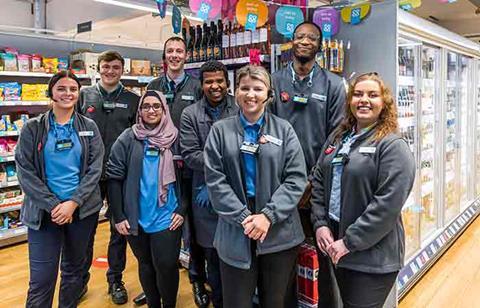
Co-op believes a strong financial wellbeing strategy is about more than products and services, and that employees should be supported to make great decisions.
The retailer, which operates almost 2,400 food stores, more than 800 funeral homes and provides products to more than 6,000 other stores, including Nisa Retail, employs 56,000 employees.
In order to support employees' financial wellbeing, Co-op has trialled automatically enrolling 1,900 employees over 12 months into savings accounts, with a £40 deposit each payday. It worked with Nest Insight, Wagestream and Harvard University to track the impact of autosave and create evidence that highlights how to help improve workers’ financial wellbeing. This is part of its broader financial wellbeing strategy, which focuses on empowering staff with better skills, information and options so they can make more thoughtful decisions around money.
Empowerment and supporting employees’ wellbeing is integral to everything the organisation does, as it is the right thing to do in order to build engagement, explains Nick Speight, culture and colleague experience director at Co-op.
“With saving, we think using a default and opt out is the way to get people started, and that’s been endorsed by our staff,” he says. “They tell us they want help and support, which we provide, but they are the best ones to make choices about their own finances. We make sure they have good options and help them choose what’s best for them. This reduces stress and worry and helps them grow and advance in their careers.”
Co-op regularly asks staff what matters most to them, with an internal survey revealing that less than half feel in control of their finances and a quarter admitting that money impacts their work performance. Financial resilience and how money worries can impact both day-to-day performance and aspirations for the future are important to the employer, so it built its strategy around employees’ expressed needs.
The retailer recognises that money and its role in lives can be a difficult thing to talk about, because there can be a lot of perceived stigma, so it is important to break that down.
Speight adds that Co-op has supported the Money and Pensions Service’s Talk Money Week every year, acknowledging the importance of playing a part in reducing some of the stigma and discomfort that prevents conversations about money.
“Taking those kind of steps helps us to have more honest and direct conversations about money, and enables our engagement and listening strategies to succeed," he says. "The result is, whether we use focus groups, surveys or work with our employee networks, we’re able to give staff a really strong voice in shaping and co-creating our wellbeing support and broader people strategies.”
















